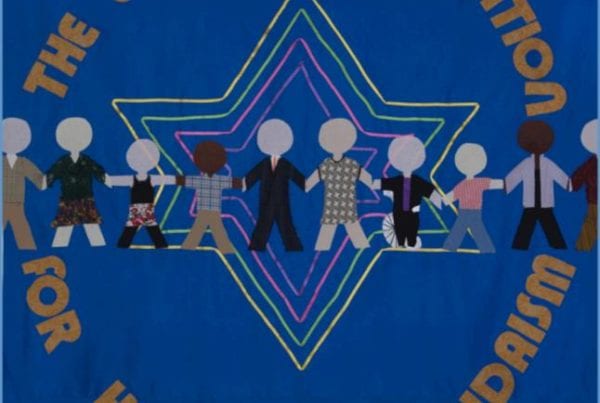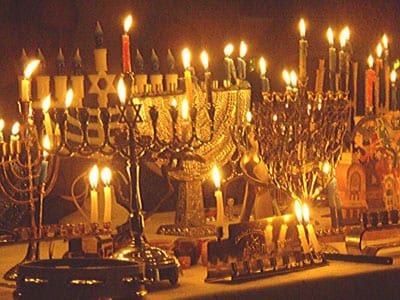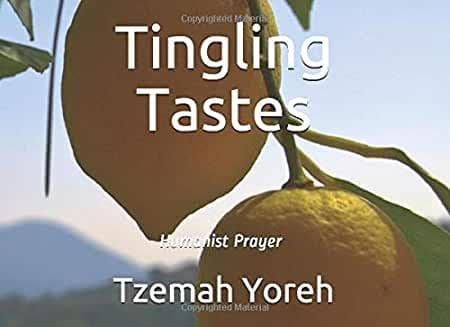Legacy of My Parents
Shirley Ranz
As some of you, who have been in The City Congregation for many years, know, both my parents are Holocaust survivors. My father and mother both contributed to a few of TCC’s Yom HaShoah programs, and I have created several of our Holocaust memorials programs as well. I met my husband, Henry, also a child of survivors, at a meeting of The Generation After, an organization founded by my father, and whose mission was to understand and share the political lessons of the Holocaust.
I can’t remember when or if my parents ever actually sat me down to tell me about the Holocaust- I felt like I grew up always knowing that I had no grandparents or extended family (except for one aunt) because they were all murdered by the Nazis.
My parents were always willing to discuss and answer questions about it, but I did not feel burdened by the horrific memories they must have had, and shared with me only when I asked.
I once discovered that a coworker was a child of survivors and upon learning this immediately felt that we shared something vital. To my utter shock and dismay I learned that she felt it was of little consequence to who she was. Nothing could be further from the truth in my case. I believe that my whole outlook on the world and how to react to it has been affected by an event, which I, myself, never experienced.
My father ‘s analysis of the Holocaust was basically a Marxist one. Because of the economic crisis in Germany and the substantial support for the Socialist and Communist parties, the country was on the verge of electing a leftist government. To prevent this, the ruling classes- the landed aristocracy, the military-industrial complex and the Church decided that backing Hitler was their best bet. Europe’s long history of persecution of the Jews, initiated by the Catholic Church, and further refined into racial anti-Semitism, provided the scapegoat needed to divert the anger of the people away from the ruling elite. Without their support Hitler would never have succeeded in seizing total power. Although they knew of Hitler’s plan to eliminate the entire Jewish population of Europe, it was a small price to pay for securing their privileges.
My father believed that although this combination of circumstances occurred at a certain time and place in history it could easily reoccur wherever economic conditions became so severe that the privileged classes felt threatened with revolution. And the only way to prevent the reoccurrence of these economic, social and political conditions was to support a more equitable distribution of wealth.
This meant a lifetime commitment to political activism. The worst possible lesson to take away from the Holocaust, second only to believing in laissez-faire, unmitigated capitalism, was to be apolitical. His motto could be summed up by Edmund Burke’s apt quotation “All that is necessary for the triumph of evil is for good men to do nothing.”
Those who adopted cynicism to excuse their laziness were beneath contempt and those who still believed in God after the Holocaust were hopeless fools. There was no perfect “ism” or system of government, which could eliminate the possibility of future genocides. Democracy was no guarantee. The tendency for humanity’s basest instincts to resurface in times of crisis was ever present, and there was nothing for it but to remain ever vigilant and engaged in opposing them.
My father was a talented speaker and I was sometimes mesmerized by his speeches. He was able to clarify complex concepts into simple language that could be easily understood and he could rouse an audience with his emotions. With this talent he was able to gain many admirers and through his organization inspire others to think differently about the legacy of the Holocaust.
The other legacy of the Holocaust was a cultural one. The survival of the Jewish people as a distinct cultural entity was of utmost importance to my parents. My brother and I were sent to the Workmen’s Circle school, where we could imbibe Yiddishkeit and the Hebrew language- its history, music and literature in a secular environment. My mother’s lovely voice, singing from the heart Yiddish classics and folk music inspired in me the desire to keep this music alive. In the summers we went to a kibbutz oriented Zionist camp in the Catskills, which led to my spending two years in Israel after high school.
Not for us the attitude of Arthur Koestler, author of the anti-totalitarian classic, Darkness at Noon, who believed that Jews should either emigrate to Israel or assimilate completely.
It was my father who introduced me to Humanistic Judaism when over 25 years ago he gave me the Society’s journal to read, and I finally found a Jewish community where I could share my love of Jewish culture without having to pretend to believe in God.
My father’s passion for political engagement was inspiring yet the one-dimensionality of his interests was disturbing. His life was so focused on the political that he hardly ever developed other interests, hobbies or real friendships. Although he was proud of my academic and professional achievements they mattered little in comparison to my work in the women’s movement. Now at age 93, unable to pursue political work, he has nothing to make his life enjoyable or meaningful.
Thanks to the influence of my mother I resisted becoming overly focused on the political to the exclusion of all else. It also became apparent to me that this was not a recipe for a good marriage. Through her joy of knitting very intricate patterns she passed on to me a love of crafts and the joy of working with my hands. She enjoyed organizational work, serving as secretary and treasurer in several leftist Zionist organizations. She loved movies, plays, and concerts and through her example of singing with the Workmen’s Circle chorus I learned the joys of singing choral music.
This was the legacy passed on to me. It has given my life a meaning and purpose other than the pursuit of personal happiness. What is the legacy I wish to pass on? Although personal charity is a good thing it is insufficient to effect societal change. Real change is not made by individual acts of kindness, but by people massing and organizing together.
My husband and I decided not to have children, nor do we have family ties to the next generation. Does this mean I am excluded from the passing on a legacy? I hope not. Sherwin Wine explained that everything we do has consequences, to others as well as to ourselves. Call it the ripple effect. Although I do not have direct contact with the younger generation I believe that my work, in the women’s movement, or in Jewish life has had an effect on future generations.



